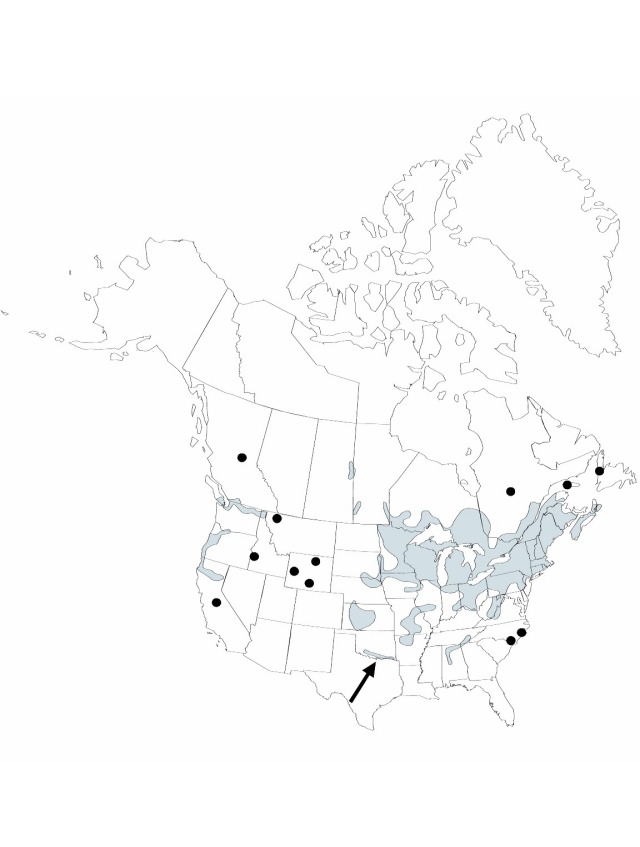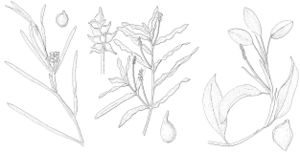Difference between revisions of "Potamogeton amplifolius"
American Journal of Science, and Arts ser. 2, 6:225. 1848.
FNA>Volume Importer |
imported>Volume Importer |
||
| (5 intermediate revisions by 2 users not shown) | |||
| Line 8: | Line 8: | ||
}} | }} | ||
|common_names=Broad-leaved pondweed;potamot à grandes feuilles | |common_names=Broad-leaved pondweed;potamot à grandes feuilles | ||
| + | |special_status={{Treatment/ID/Special_status | ||
| + | |code=F | ||
| + | |label=Illustrated | ||
| + | }}{{Treatment/ID/Special_status | ||
| + | |code=E | ||
| + | |label=Endemic | ||
| + | }} | ||
|basionyms= | |basionyms= | ||
|synonyms= | |synonyms= | ||
| Line 35: | Line 42: | ||
-->{{#Taxon: | -->{{#Taxon: | ||
name=Potamogeton amplifolius | name=Potamogeton amplifolius | ||
| − | |||
|authority=Tuckerman | |authority=Tuckerman | ||
|rank=species | |rank=species | ||
| Line 49: | Line 55: | ||
|publication title=American Journal of Science, and Arts | |publication title=American Journal of Science, and Arts | ||
|publication year=1848 | |publication year=1848 | ||
| − | |special status= | + | |special status=Illustrated;Endemic |
| − | |source xml=https:// | + | |source xml=https://bitbucket.org/aafc-mbb/fna-data-curation/src/2e0870ddd59836b60bcf96646a41e87ea5a5943a/coarse_grained_fna_xml/V22/V22_449.xml |
|genus=Potamogeton | |genus=Potamogeton | ||
|species=Potamogeton amplifolius | |species=Potamogeton amplifolius | ||
Latest revision as of 20:31, 5 November 2020
Rhizomes present. Cauline stems terete, often rusty spotted, 6–110 cm; nodal glands absent. Turions absent. Leaves both submersed and floating or floating absent, ± spirally arranged. Submersed leaves petiolate, lax; stipules persistent, conspicuous, convolute, free from blade, light brown, not ligulate, 1.5–11.7 cm, not fibrous, not shredding at tip, apex acute; petioles terete, 0.9–11.5 cm; blade light to dark green, ovate to oblanceolate, distinctly arcuate, 5–12.5 cm × 15–58 mm, base rounded to acute, without basal lobes, not clasping, margins entire, crispate, apex not hoodlike, acute to round-apiculate, lacunae absent; veins 19–49. Floating leaves: petioles continuous in color to apex, 2.3–22.6 cm; blade adaxially light green, lanceolate to round elliptic, 4.3–9.2 cm × 25–38 mcm, base rounded to cordate, apex acute to rounded; veins 27–49. Inflorescences unbranched, emersed; peduncles not dimorphic, terminal or axillary, erect, cylindric, 4.5–22.3 cm; spikes not dimorphic, cylindric, 34–65 mm. Fruits sessile, reddish brown, obovoid, turgid, abaxially keeled, laterally ridged, 5–6.7 × 4.5–5.2 mm, lateral ridges without points; beak erect, 0.5–0.8 mm; sides without basal tubercles; embryo with full spiral. 2n = 52.
Phenology: Flowering summer–fall.
Habitat: Waters of lakes, ponds, streams, and rivers
Elevation: 0–1900(–2900) m
Distribution

B.C., Man., N.B., Nfld. and Labr. (Nfld.), N.S., Ont., Que., Sask., Ala., Ark., Calif., Conn., Ga., Idaho, Ill., Ind., Iowa, Kans., Maine, Md., Mass., Mich., Minn., Mo., Mont., Nebr., N.H., N.J., N.Y., N.C., Ohio, Okla., Oreg., Pa., R.I., S.Dak., Tenn., Vt., Va., Wash., W.Va., Wis., Wyo.
Discussion
No specimens have been seen from Kentucky or Texas, but the species is to be expected there.
Potamogeton amplifolius is common throughout much of North America. Its submersed leaves are larger than those of most other species of Potamogeton, are arcuate, and have more veins than do any other species.
One hybrid, Potamogeton amplifolius × P. illinoensis (= P. × scoliophyllus Hagström), has been described.
Selected References
None.
